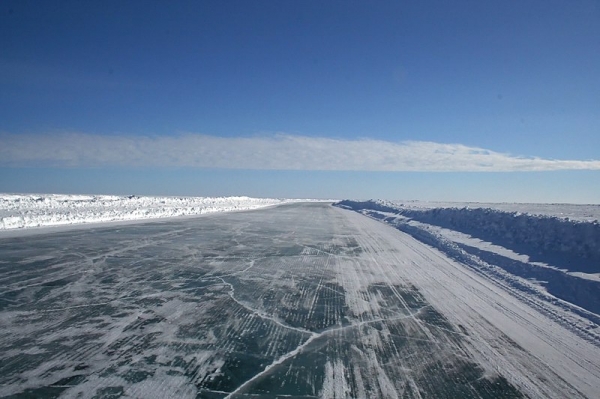Vital winter ice road infrastructure may be cracking and sinking under the load of an unseasonably warm start to the new year across Europe and North America, a trend York University Associate Professor Sapna Sharma and team has detailed in a recent study.
The research warns that ice roads, essential for moving people, food, medicine and fuel in remote northern communities, as well as heavy machinery used by industry, may become unsustainable as the climate warms. This poses significant issues this century.
Will ice road truckers become a thing of the past? That’s a question Sharma, a freshwater expert in York’s Faculty of Science, says could depend on the thickness of ice needed to support the truck and its load. What might be thick enough for snowmobiles, pick-up trucks and skiers, could see ice cracking up under the weight of transport trucks in northern Canada, the United States, Russia and Sweden.
“This balmy weather could have significant impacts on northern communities who rely on those roads and ice for their existence. These communities will be most impacted by our projected change in the duration and thickness of lake ice,” says Sharma. “It would also affect recreational uses, even in more southerly areas. Our warming world is creating conditions where the duration of lake ice is shortening at alarming rates, and even if those lakes still freeze, the ice may not be thick enough for safe use.”
Read more at York University
Photo Credit: Ian Mackenzie via Wikimedia Commons


